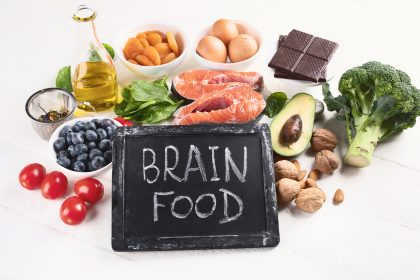Eggs have been a staple food for thousands of years, yet many people remain unaware of the profound changes that occur in their bodies when they consume this nutritional powerhouse daily. The transformation begins within hours of eating your first egg and continues to build over weeks and months of consistent consumption.
The humble egg contains a complex matrix of nutrients working together in ways that scientists are still discovering. When you eat eggs regularly, you’re not just getting protein—you’re providing your body with a complete nutritional package that affects everything from your brain function to your hormone production.
Modern nutritional science has revealed that eggs trigger cascading effects throughout multiple body systems. These effects compound over time, creating health benefits that extend far beyond what most people expect from such a simple food choice.
Understanding what happens inside your body when you eat eggs daily can help you make informed decisions about your nutrition and health goals. The changes are both immediate and long-term, affecting your energy levels, physical performance, and overall well-being in ways that might surprise you.
Brain transformation and cognitive enhancement
Daily egg consumption creates remarkable changes in brain structure and function that become more pronounced over time. The nutrients in eggs directly support the production of neurotransmitters and the maintenance of brain cell membranes, leading to improved cognitive performance.
Choline, abundant in egg yolks, serves as a precursor to acetylcholine, a neurotransmitter essential for memory formation and learning. When you eat eggs daily, you provide your brain with a consistent supply of this crucial building block, potentially enhancing memory retention and recall abilities.
The phosphatidylcholine in eggs supports brain cell membrane integrity, helping maintain the electrical signals that allow neurons to communicate effectively. This structural support becomes increasingly important as you age, potentially helping preserve cognitive function over time.
Daily egg consumption may improve focus and concentration by providing steady amino acid availability for neurotransmitter production. Unlike processed foods that cause energy spikes and crashes, eggs provide sustained nutrition that supports stable brain function throughout the day.
The B-vitamins in eggs, particularly B12 and folate, play crucial roles in brain health by supporting the production of myelin, the protective sheath around nerve fibers. Regular egg consumption helps maintain these protective structures, potentially preserving cognitive speed and accuracy.
Muscle building and protein synthesis
Eating eggs daily provides your muscles with high-quality protein that contains all essential amino acids in optimal ratios for human needs. This complete protein profile makes eggs particularly effective for supporting muscle growth, repair, and maintenance.
The leucine content in eggs is especially important for triggering muscle protein synthesis, the process by which your body builds new muscle tissue. Daily egg consumption ensures consistent availability of this key amino acid, potentially enhancing your body’s ability to build and maintain lean muscle mass.
Eggs contain proteins that are absorbed and utilized more efficiently than many other protein sources. This high biological value means that nearly all the protein you consume from eggs can be used by your body for muscle building and repair processes.
The timing of egg consumption can enhance muscle protein synthesis throughout the day. Eating eggs at breakfast provides amino acids that continue supporting muscle building processes for hours, while eggs consumed after exercise can enhance recovery and adaptation.
Regular egg consumption may help preserve muscle mass during weight loss efforts or aging. The high-quality protein and nutrient density of eggs support muscle maintenance even when overall calorie intake is reduced.
Hormonal balance and endocrine support
Daily egg consumption influences hormone production and regulation throughout your body. Eggs provide cholesterol and other nutrients that serve as building blocks for important hormones, including testosterone, estrogen, and cortisol.
The cholesterol in eggs supports the production of steroid hormones that regulate metabolism, stress response, and reproductive function. Despite decades of concern about dietary cholesterol, your body needs this compound for optimal hormone production.
Eggs contain nutrients that support thyroid function, including iodine and selenium. Regular consumption may help maintain healthy thyroid hormone levels, which regulate metabolism, energy production, and numerous other bodily functions.
The vitamin D in eggs, particularly from pasture-raised sources, supports hormone regulation and bone health. This nutrient functions more like a hormone than a vitamin, influencing calcium absorption, immune function, and mood regulation.
Daily egg consumption may help stabilize blood sugar levels through their effect on insulin sensitivity. The protein and fat in eggs slow carbohydrate absorption and may improve your body’s ability to regulate blood glucose levels over time.
Cardiovascular health improvements
Contrary to previous concerns, daily egg consumption appears to support cardiovascular health through multiple mechanisms. The nutrients in eggs work together to improve various markers of heart health when consumed as part of a balanced diet.
The omega-3 fatty acids in eggs, especially from pasture-raised sources, support heart health by reducing inflammation and improving blood vessel function. These healthy fats may help maintain proper heart rhythm and reduce the risk of cardiovascular events.
Eggs contain antioxidants like lutein and zeaxanthin that may help protect blood vessels from oxidative damage. These compounds accumulate in tissues throughout the body, potentially reducing inflammation that contributes to cardiovascular disease.
The protein in eggs may help improve blood pressure regulation by providing amino acids that support healthy blood vessel function. Some amino acids in eggs can be converted to compounds that help blood vessels relax and maintain proper circulation.
Daily egg consumption may improve cholesterol profiles by increasing HDL (good) cholesterol levels while maintaining or improving the ratio of HDL to LDL cholesterol. This improvement in cholesterol balance supports overall cardiovascular health.
Eye health and vision protection
The antioxidants in eggs provide powerful protection for your eyes, with daily consumption potentially reducing the risk of age-related eye diseases. These protective compounds accumulate in eye tissues, creating a natural defense against damage.
Lutein and zeaxanthin, the primary antioxidants in egg yolks, concentrate in the macula of the eye where they filter harmful blue light and protect against oxidative damage. Regular egg consumption increases levels of these protective compounds in eye tissues.
The zinc in eggs supports retinal health and may help maintain night vision. This mineral is essential for the function of enzymes in the retina and plays a role in transporting vitamin A, which is crucial for vision.
Daily egg consumption may help prevent cataracts by providing antioxidants that protect the lens of the eye from oxidative damage. The combination of antioxidants and other nutrients in eggs creates comprehensive eye protection.
The vitamin A in eggs supports overall eye health and vision function. This nutrient is essential for the production of rhodopsin, a protein that allows your eyes to detect light and see in low-light conditions.
Skin health and appearance
Eating eggs daily provides nutrients that support skin health from the inside out. The protein, vitamins, and minerals in eggs contribute to skin structure, repair, and protection against environmental damage.
The high-quality protein in eggs provides amino acids necessary for collagen production, the protein that gives skin its structure and elasticity. Regular egg consumption supports the body’s ability to maintain and repair skin tissues.
Biotin, present in eggs, plays a crucial role in skin health by supporting the production of fatty acids that maintain skin barrier function. This vitamin helps keep skin hydrated and protected from environmental stressors.
The selenium in eggs acts as an antioxidant that may help protect skin from sun damage and premature aging. This mineral supports the function of enzymes that neutralize free radicals that can damage skin cells.
Eggs contain sulfur-containing amino acids that support the production of keratin, a protein that strengthens skin, hair, and nails. Daily consumption may contribute to stronger, healthier-looking skin over time.
Immune system strengthening
Daily egg consumption supports immune function through multiple nutrients that help your body defend against infections and diseases. The immune-supporting effects of eggs become more apparent with consistent consumption over time.
The protein in eggs provides amino acids necessary for producing antibodies and other immune system components. These proteins help your body recognize and respond to potential threats more effectively.
Selenium in eggs supports immune function by acting as an antioxidant and supporting the production of immune cells. This mineral helps maintain the balance between different types of immune responses.
The vitamin D in eggs, particularly from pasture-raised sources, plays crucial roles in immune regulation. This nutrient helps modulate immune responses and may reduce the risk of autoimmune conditions.
Eggs contain compounds that may have antimicrobial properties, potentially helping your body resist infections. Some proteins in eggs have been shown to have natural antibacterial and antiviral effects.
Weight management and metabolism
Daily egg consumption can support healthy weight management through several mechanisms that affect metabolism, satiety, and energy balance. These effects make eggs a valuable component of weight control strategies.
The high protein content of eggs increases satiety more effectively than carbohydrates or fats alone. This increased feeling of fullness may help reduce overall calorie intake throughout the day.
Eggs have a high thermic effect, meaning your body burns more calories digesting and processing them compared to other foods. This increased energy expenditure can contribute to weight management over time.
The amino acids in eggs may help preserve muscle mass during weight loss efforts. Maintaining muscle tissue is important for keeping metabolism elevated and achieving sustainable weight loss.
Daily egg consumption may help stabilize blood sugar levels, reducing cravings and energy crashes that can lead to overeating. The protein and fat in eggs provide sustained energy without dramatic blood sugar fluctuations.
Liver function and detoxification
Eggs provide nutrients that support liver health and the body’s natural detoxification processes. Daily consumption may help maintain optimal liver function and support the elimination of toxins from the body.
Choline in eggs is essential for liver function and helps prevent the accumulation of fat in the liver. This nutrient supports the production of phospholipids that help transport fats out of the liver.
The methionine in eggs provides sulfur that supports the liver’s detoxification pathways. This amino acid helps the liver process and eliminate various toxins and waste products from the body.
Eggs contain antioxidants that may help protect the liver from oxidative damage caused by toxins and metabolic processes. These protective compounds support overall liver health and function.
The B-vitamins in eggs support various liver enzymes involved in detoxification and metabolism. These nutrients help ensure that the liver can effectively process nutrients and eliminate waste products.
Bone health and calcium metabolism
Daily egg consumption supports bone health through multiple nutrients that work together to maintain bone density and strength. These effects become more important as you age and bone formation slows down.
The vitamin D in eggs helps your body absorb and utilize calcium from other food sources. This nutrient is essential for maintaining proper calcium balance and supporting bone mineralization.
Eggs contain phosphorus, which works with calcium to build and maintain strong bones. This mineral is a major component of bone tissue and is essential for bone structure and strength.
The protein in eggs provides amino acids necessary for bone matrix formation. Bones are not just mineral deposits but living tissues that require protein for structure and repair.
Some compounds in eggs may help reduce bone loss by supporting the balance between bone formation and breakdown. This balance is crucial for maintaining bone density throughout life.
Pregnancy and reproductive health
Daily egg consumption during pregnancy and reproductive years provides nutrients that support healthy development and reproductive function. The nutrient density of eggs makes them particularly valuable during these critical periods.
Folate in eggs is essential for preventing neural tube defects during early pregnancy. This vitamin supports proper DNA synthesis and cell division during fetal development.
The choline in eggs is crucial for fetal brain development and may support cognitive function in the developing child. Many women don’t get adequate choline from other dietary sources.
Eggs provide high-quality protein needed for fetal growth and development. The amino acid profile of eggs closely matches human needs, making them an ideal protein source during pregnancy.
The nutrients in eggs may support fertility in both men and women by providing building blocks for hormone production and reproductive cell development.
Long-term health implications
Consistent daily egg consumption over months and years may contribute to long-term health benefits that extend well beyond the immediate nutritional effects. These cumulative benefits make eggs a valuable component of a health-promoting diet.
The nutrient density of eggs means that regular consumption helps prevent deficiencies that might otherwise develop over time. This nutritional insurance effect supports overall health and well-being.
The anti-inflammatory compounds in eggs may help reduce chronic inflammation that contributes to various age-related diseases. This protective effect becomes more important as you age.
Daily egg consumption may support healthy aging by providing nutrients that protect against age-related decline in various body systems. The comprehensive nutrition in eggs supports multiple aspects of health simultaneously.
The convenience and versatility of eggs make them a sustainable choice for long-term health maintenance. Unlike many health foods that are difficult to incorporate regularly, eggs can easily become a daily habit.















